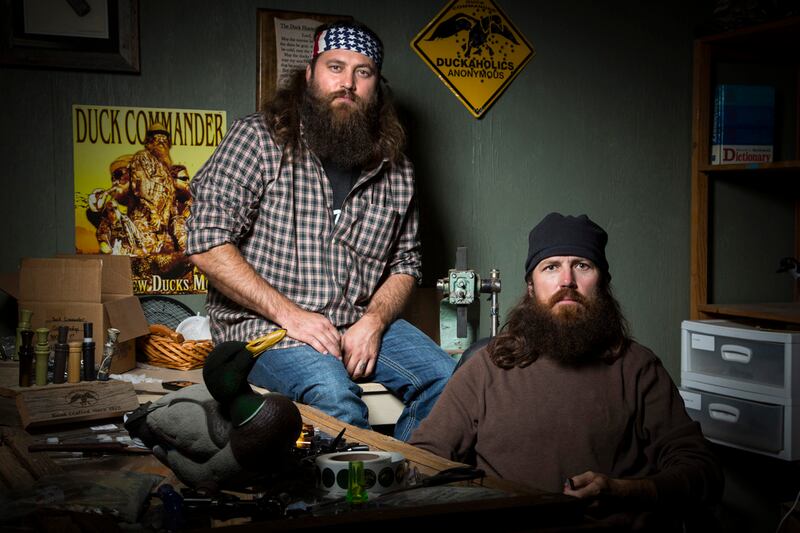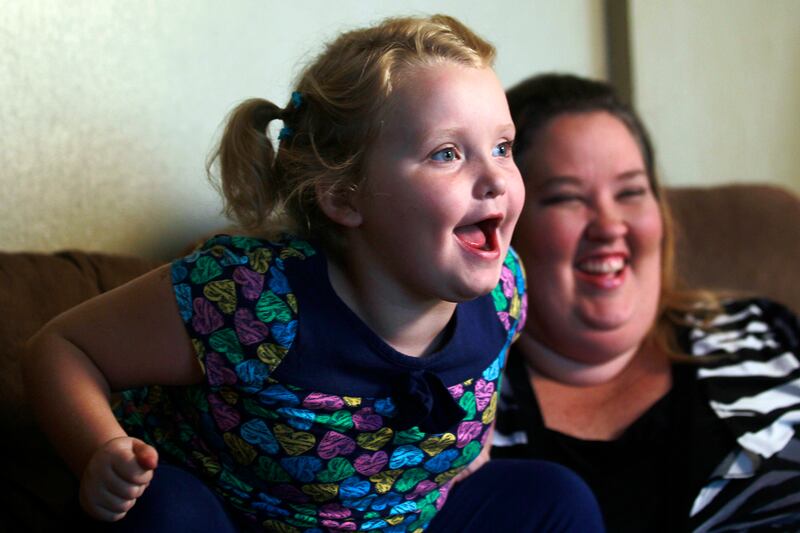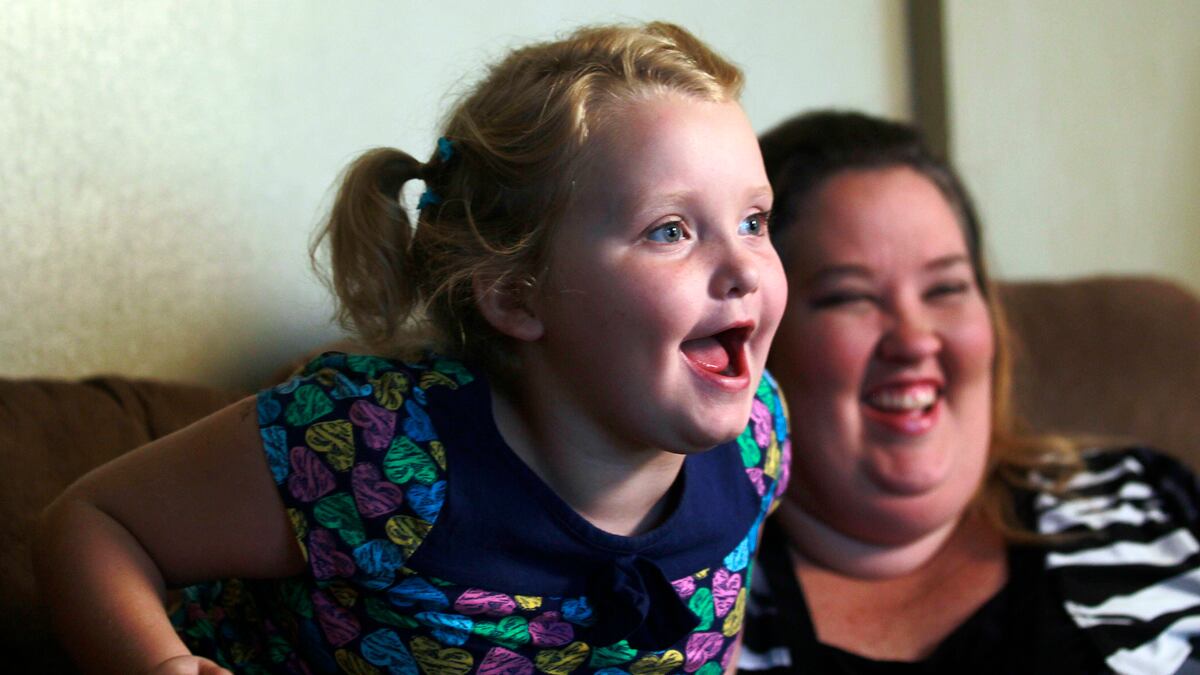Spoiled, gaudy rich people are so over. Spoiled, gaudy rednecks are in. With the wild success of Here Comes Honey Boo Boo, Duck Dynasty, Swamp People, and Redneck Island and the January debut of MTV’s newest reality-TV offering, Buckwild, the people have spoken: give us your unwashed, your unvarnished, your uncouth. Or, as the trailer for Buckwild proclaims, “We’re young, we’re free, we’re buckwild.”
Perhaps it’s the economy that’s driving this need to see how the other half not living in McMansions lives. In an election year when we rejected a self-made half-billionaire and voted for the up-by-the-bootstraps president, it makes sense that the shows we’d be most entranced by aren’t featuring the rich and famous of Orange County, Beverly Hills, or even New Joisey, but the Louisiana-based Robertson clan of Duck Dynasty, the purveyors of a perfect duck call, dubbed the Duck Commander, said Robert Galinsky, the owner of New York Reality TV School, which coaches aspiring reality-TV stars.
“It’s a sort of pendulum, the other side of the coin maybe?” he said. “We’ve been watching Kardashians. We’ve been watching the rich girl celebrating their 16th birthday, watching the rich boys and girls in the city. What’s happening with our fiscal climate, what’s happening is that people are kind of disgusted with watching that sort of self-importance and money.”
Though the bearded, backwoods-appearing Richardson clan is richer than dirt, they don’t look or act like it. They live in a modest, if cramped-looking, house, go to work every day, and don beards thicker than the forests surrounding their homes. They crack wise, make fun of each other, and, most importantly, do everything together.
”There’s something silly and funny about the Southern redneck, the hillbilly,” said Galinsky. “All our scripted shows, from Green Acres, to Beverly Hillbillies, it’s made them look really silly and harmless. It’s safer.”
The key to the Richardson clan, though, is that they seem like regular folk. The Richardsons have clearly resonated with the American people—the second-season finale scored record-high ratings: 6.45 million viewers tuned in, beating out not just cable’s American Horror Story, but also thrashing the broadcasters, as Duck Dynasty trumped Survivor, Nashville, and The X Factor in the ratings.
In terms of cultural cache, the Richardsons have nothing on Here Comes Honey Boo Boo, which centers around 7-year old pageant participant Alana Thompson (Honey Boo Boo); her mother, June; and their family’s hijinks. The New York Times dubbed the show a “poverty voyeurism comedy tour.”
Honey Boo Boo herself has achieved a certain level of cultural fame—she has already inspired art projects and a New York Times op-ed about being gay in the South (thanks to an episode in which she introduced viewers to Uncle Poodle), and was named to the shortlist of most fascinating people of 2012 by Barbara Walters. And because of her, we know what go-go juice is.
Still, there’s an uncomfortable gawking-at-the-scene-of-the-accident element to watching these shows. Call it rubbernecking, or shame watching; in a way, redneck reality-television shows are a sort of travel channel for the cultural elite. “There is a sense of discovery. One thing people don’t talk about with reality television—the cultural snapshot that reality television takes,” said Galinsky. “Like, wow! As much as we can travel around the world with our digital devices and we get on a plane and go anywhere, a lot of people still don’t travel. A lot of people don’t see the world. There’s a sense of discovery and delight to seeing these stereotypes that we may have heard about and read about. That they are real. They are not that small percentage of what people think that population is like. They are just as powerful as so called ‘normal’ middle-class people.”
Buckwild, the newest entree in the trailer-trash reality-TV set, rips a page from Jersey Shore. Instead of foisting a group of people from varying walks of life into one house, the cable channel is featuring a group of tight-knit kids who are all from the same subsection of society, in this case, Sissonville, W.Va.
If the trailers are to be believed, Southern culture, already looked down upon by the Northeastern erudite intellectuals and the far-left liberals of the West Coast, gets painted with an even broader brush this go-round. The clips feature motorbiking, guns, mud wrestling, teenagers swinging from tires into a lake, bonfires, beer guzzling, fistfights, and temper tantrums delivered in a Southern drawl. Shockingly, there is one nonwhite person in the cast, Salwa, or as MTV has dubbed her, “Bengali in boots.”

On cue: politicians and community members are outraged.
West Virginia Sen. Joe Manchin wrote a letter to the president of MTV chastising the channel for the show. And in an interview with The Washington Post, he said, “This show plays to ugly, inaccurate stereotypes about the people of West Virginia.”
But Galinsky says they shouldn’t protest so much. “As much as the people in Virginia are complaining how they are being misrepresented, they are not. Those people are real. They exist. They are from Virginia. They are mountaineers.”
But are we making fun of them to make ourselves feel better? Or are we secretly envious?
“I think it’s more on the admiring side,” said TV historian Tim Brooks, who co-wrote the book The Complete Directory to Prime Time Network and Cable TV Shows, 1946-Present. “I mean certainly TV critics, Upper West Side types, and the intelligentsia look down on them. But much of my career was doing focus groups and surveys and tests ... And most of the time, average viewers around the country look at those people as real people. They are different from them, but that doesn’t mean they are below them. They relate to so many elements of their life. The average housewife isn’t going to send her kids out to mud races, but she fights the same battles.”
Maybe there’s something we really like about them after all. Say what you will about Honey Boo Boo, but she’s got balls.
“Honey Boo Boo is where our child prodigies have risen to,” said Galinsky. “She’s outspoken. She’s very intelligent—as much as she may not have a level of class that people would expect. But she’s outspoken; she’s intelligent; she takes risks. People want to take risks in their lives, and they’re afraid, so what do they do? They turn the TV on and watch somebody else do it. Now you’ve got this young girl who is real, is doing her thing—it’s way more exciting than watching a 9-year-old on Law & Order.”
The reality-TV rednecks might not live the way some of the TV-watching elite live, us in our postmodern, perpetually single, increasingly atheistic and agnostic, fractured lives, eating out every night and creating makeshift families from friends and adopted communities, but there’s something weirdly nostalgic about these shows. They recall a time when families ate dinner together, when friends played outside in the woods instead of on their computers, when families stuck together instead of moving cross country, even when they annoyed or even hated each other.
At their most basic, Duck Dynasty and Honey Boo Boo are about family. At the Robertson house, it appears as if they always eat dinner at the same time, every night a foreign experience to many people who grew up in divorced households. The takeaway from Buckwild could be the strong bond of youthful friendship—a hillbilly version of us against the world.

“There’s a sticking-together aspect and supporting-each-other aspect,” said Brooks. “Very few if any of those shows are about loners. They are always about families or groups or people who get together to do something. They often have squabbles and jealousies and form factors, and shows tend to play that up, just like real families do, but they’re supporting each other in order to accomplish something.”
No, they are not just like us. And they like it that way. Swamp People, another show set in Louisiana, shows Cajun families and gator hunters making their living and living off the land—with a freezer full of wild boar to prove it. “There is some self-awareness over what they are doing,” said Brooks. “They are proud of it. One of the things you learn from these shows is that people who aren’t like us may be proudly not like us. They live differently intentionally.”
Maybe, in making these shows so popular, Americans are saying they wish they were more like Honey Boo Boo and June and the Robertsons and the Buckwild kids, not less.
“Even Honey Boo Boo, it is a nuclear family,” said Brooks. “It’s an overweight nuclear family; it’s a redneck nuclear family. But it’s a family. And that’s reassuring in a world where there is fewer and fewer of those.”






